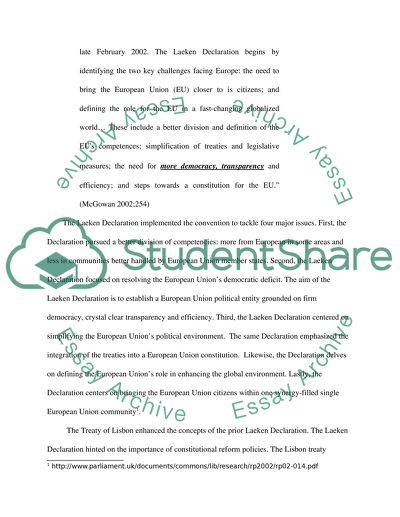Cite this document
(“Laeken Declaration Paper Essay Example | Topics and Well Written Essays - 2500 words”, n.d.)
Retrieved from https://studentshare.org/law/1441354-the
Retrieved from https://studentshare.org/law/1441354-the
(Laeken Declaration Paper Essay Example | Topics and Well Written Essays - 2500 Words)
https://studentshare.org/law/1441354-the.
https://studentshare.org/law/1441354-the.
“Laeken Declaration Paper Essay Example | Topics and Well Written Essays - 2500 Words”, n.d. https://studentshare.org/law/1441354-the.


